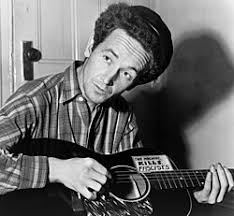The Enduring Legacy of Woody Guthrie in American Music

Introduction
Woody Guthrie, one of the most influential figures in American folk music, left an indelible mark on the landscape of music and culture. Known for his poignant lyrics reflecting the struggles of the working class, Guthrie’s songs continue to resonate, providing insight into American history and social issues. His relevance in today’s music scene is evident as contemporary artists draw inspiration from his work to address current societal concerns.
Life and Career
Born on July 14, 1912, in Okemah, Oklahoma, Woody Guthrie’s early life was shaped by the hardships faced by his family during the Great Depression. His experiences led him to become a traveling musician, sharing his songs with disenfranchised communities across the United States. Guthrie’s most notable work, “This Land Is Your Land,” serves as both a patriotic anthem and a critique of economic inequality, showcasing his ability to blend art with social commentary.
Throughout his career, Guthrie wrote hundreds of songs, many of which became folk standards. He was known for his collaborations with other artists and was a key figure in the American folk music revival of the 1940s and 1950s. Notably, Guthrie was also an early supporter of the labor movement, using his music to advocate for workers’ rights and social justice.
Legacy and Impact
Woody Guthrie’s impact on music and culture is profound. After his death in 1967, his songs lived on, influencing a new generation of musicians, including Bob Dylan, Bruce Springsteen, and Joan Baez. The Woody Guthrie Center, established in Tulsa, Oklahoma, houses a vast collection of his work and promotes the study of folk music and its ties to social activism.
In recent years, social movements have revived interest in Guthrie’s message. His music has been used in protests advocating for immigrant rights, environmental issues, and economic justice, reinforcing his role as a voice for the marginalized. The continued relevance of his songs demonstrates the power of music as a tool for change.
Conclusion
As we reflect on Woody Guthrie’s legacy, it is evident that his contributions to folk music and social activism remain significant. His ability to articulate the struggles of everyday people through song has inspired countless artists to use their platforms for activism. With ongoing challenges facing society today, Guthrie’s work serves as a reminder of the responsibilities that come with creativity and the enduring power of music to effect change. As new generations discover his music, the legacy of Woody Guthrie will continue to inspire social consciousness and unity among people.


